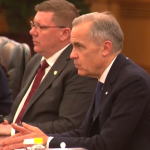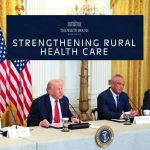Sent regulators to harass, investigate, fine institutions until they complied
![]()
A new report reveals that Joe Biden, while in the White House, pressured a dozen corporations to debank Donald Trump, sending regulators to harass and investigate banks, even fining them, until they cooperated.
And a report in the Washington Stand reveals they used the concept of “reputational risk” in their threats against the banks.
The report comes on the heels of Trump actually signing an executive order that intends to do away with that option.
His “Guaranteeing Fair Banking for All Americans” was just announced.
The report explained that the New York Post documented how Biden pushed for “at least 12 financial institutions to either refuse to do business with Trump or close accounts that he already had.”
Trump earlier identified two of those who gave in to Biden’s pressure as JPMorganChase and Bank of America.

The Stand explained, “The Biden administration used ‘reputational risk’ to send regulators to pressure major banks, harassing, investigating, and even fining banks until they complied. The ‘reputational risk’ rule was originally designed to be used against criminals, like mass fraudsters or notorious sex trafficker and self-styled financier Jeffrey Epstein, but the Biden administration cited the events of January 6, 2021, to turn ‘reputational risk’ against Trump.”
Trump’s new order now gives banks and others 120 days to rescind policies discriminating against clients on the basis of political or religious views. And they’ve been ordered to track down those they already punished, and offer them services.
The Post said the Biden campaign to harm Trump’s banking abilities came in the months after Trump left the White House in 2021.
The Post warned, “It should be reported as much as possible for the simple reason that if any big bank can cancel a former president over politics as opposed to illegality, then every American citizen is in danger of facing the same mistreatment.”
The Post reported, “Keep in mind, there are already laws preventing the likes of JPMorgan, BofA and Capital One — the banks Trump has publicly stated canceled him — from being conduits for drug kingpins and Mafiosi. (Trump has sued Capital One, which denied Trump’s allegations.) Debanking takes it further. It forces banks to remove customers who might pose nothing more than ‘reputational risk,’ a flighty rule enforced by bank regulators in recent years to keep financial institutions from doing business with people like Jeffrey Epstein.”
The Post explained Biden unleashed his “bank regulatory cops at the Office of Comptroller of Currency, the FDIC and the semi-independent Federal Reserve to go beyond nixing perverted financiers from their platform.”
“They used the amorphous nature of what is reputational risk to enforce a political regime, the bank officials said.”
In the bull’s-eye then was anything to do with Trump, anything to do with crypto, as well as things to do with guns and “certain conservative religious organizations.”
It explained, “As bad as the events of Jan. 6 were, Trump did tell the crowd that crazy afternoon to protest peacefully. Trump didn’t break the law holding a rally.”
Trump’s new order says, “Bank regulators have used supervisory scrutiny and other influence over regulated banks to direct or otherwise encourage politicized or unlawful debanking activities. ‘Operation Chokepoint,’ for example, was a well-documented and systemic means by which Federal regulators pushed banks to minimize their involvement with individuals and companies engaged in lawful activities and industries disfavored by regulators based on factors other than individualized, objective, risk-based standards.
“As a result, individuals, their businesses, and their families have been subjected to debanking on the basis of their political affiliations, religious beliefs or lawful business activities, and have suffered frozen payrolls, debt and crushing interest, and other significant harms to their livelihoods, reputations, and financial well-being. Such practices are incompatible with a free society and the principle that the provision of banking services should be based on material, measurable, and justifiable risks. Such practices, when wielded to discriminate against customers and businesses in credit transactions due to their religion, are also unlawful under the Equal Credit Opportunity Act (15 U.S.C. 1691 et seq.). They further undermine public trust in banking institutions and their regulators, discriminate against political beliefs and free expression of those beliefs, and weaponize a politicized regulatory state. ”
He said, “It is the policy of the United States that no American should be denied access to financial services because of their constitutionally or statutorily protected beliefs, affiliations, or political views, and to ensure that politicized or unlawful debanking is not used as a tool to inhibit such beliefs, affiliations, or political views. Banking decisions must instead be made on the basis of individualized, objective, and risk-based analyses.”











